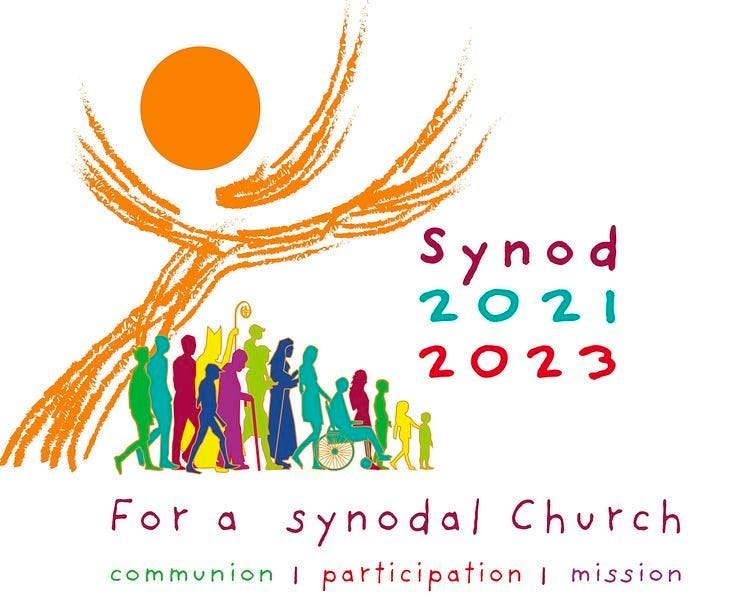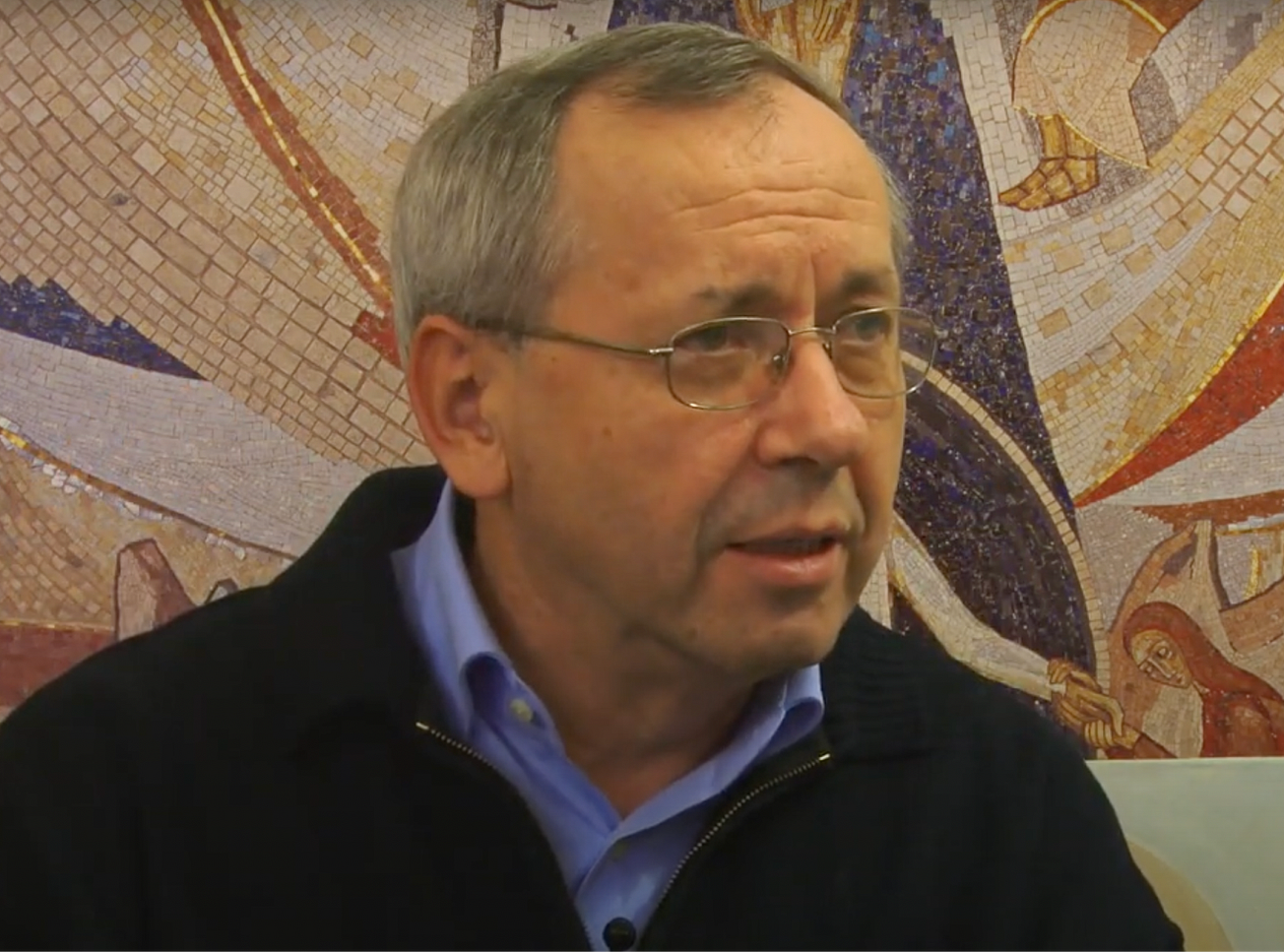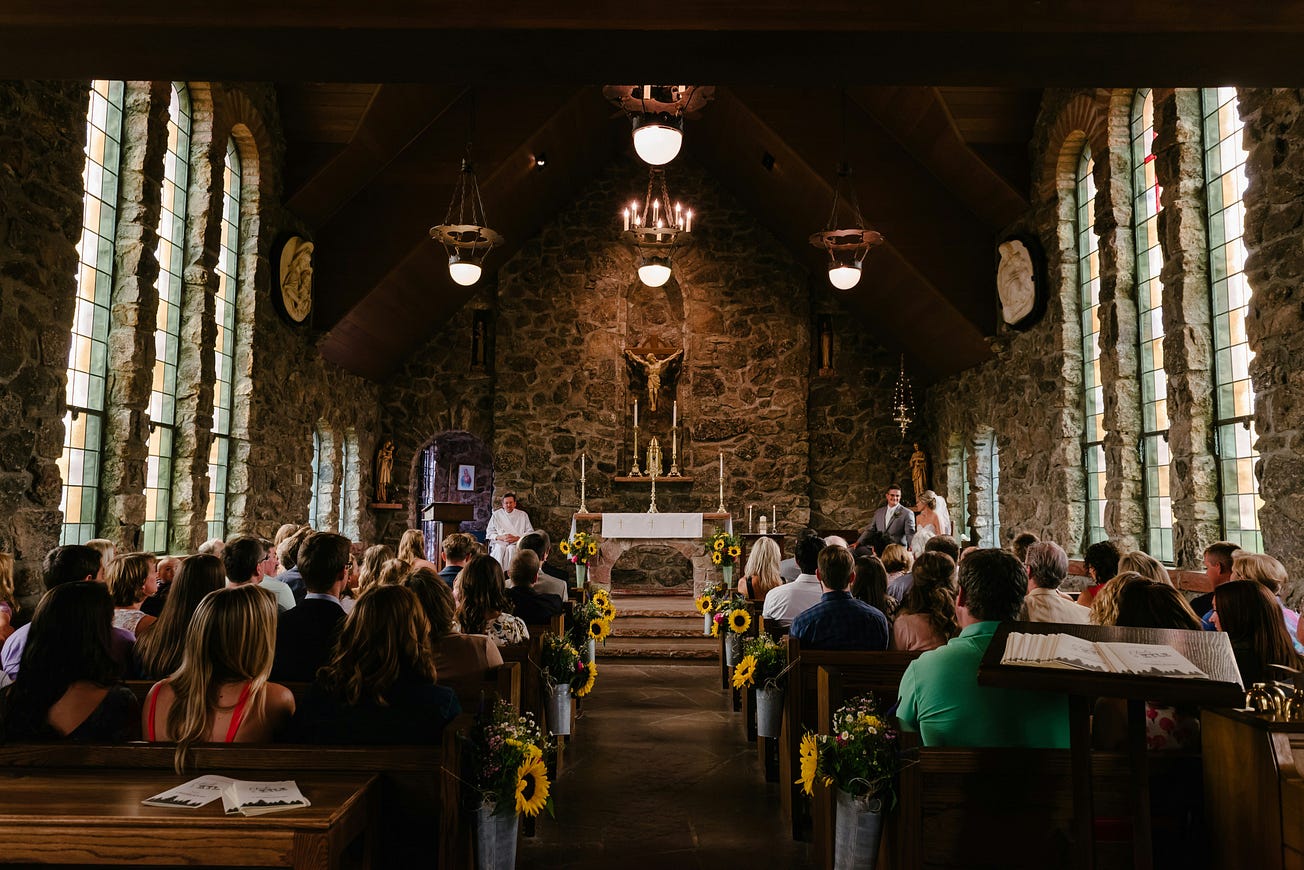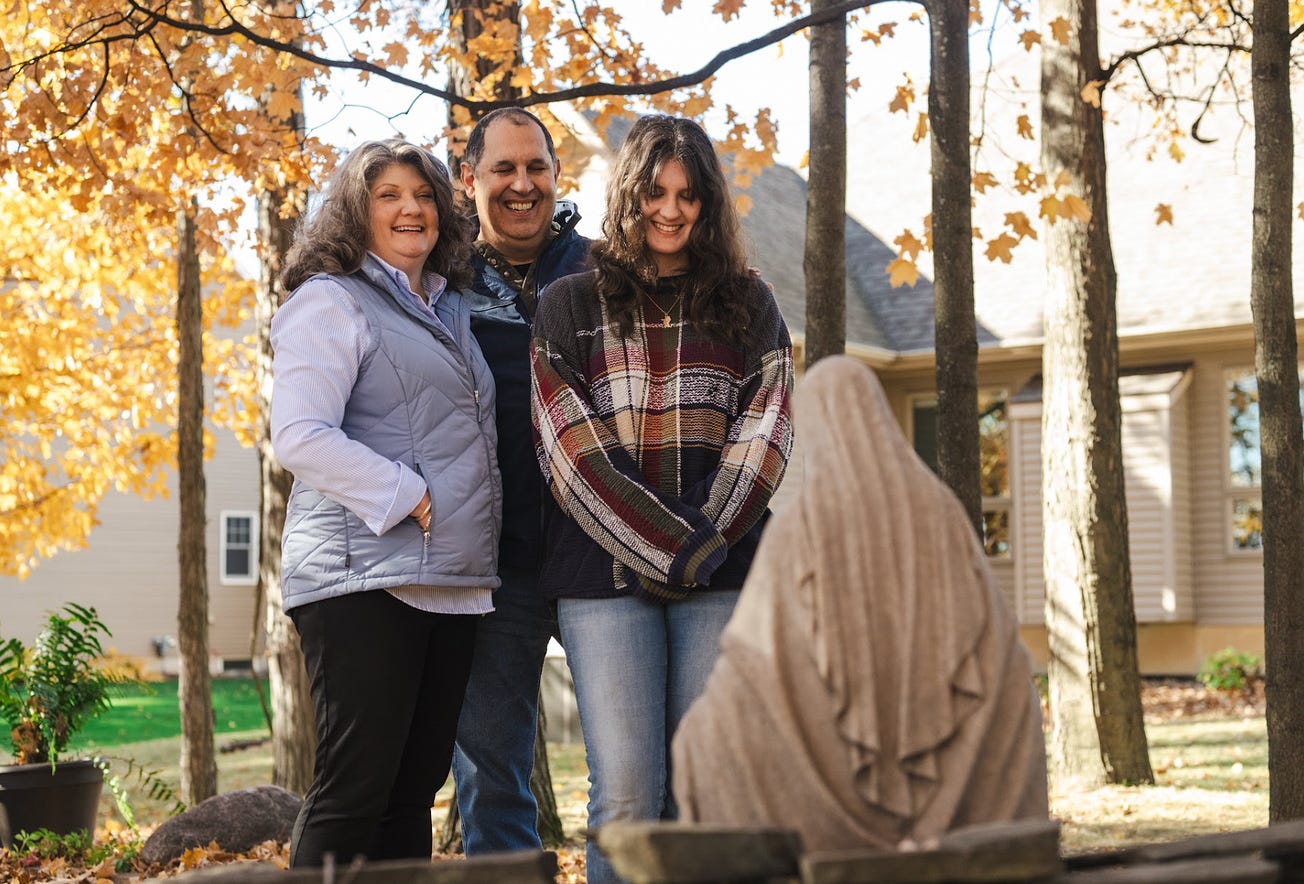It all comes down to this.
It has been 54 months. There have been hundreds of listening sessions, tens of thousands of participants, and expenditures well into the millions.
There have been controversies, denunciations, and ecstatic praise for “new ways of being Church.” There have been terrible graphic designs, questionable drafting processes, unsecured servers, untenable expectations, and genuine hopes for peace.
When the synod on synodality was first announced, not one U.S. parish had yet closed over Covid-19. There was no full-scale Russian invasion of Ukraine, no GameStonk, and no sense of just how unsettling global supply chain disruptions would become. Pope Francis had not yet stood in a rainy St. Peter’s Square, asking God to spare the world from a plague.
When the pontiff announced the synod on synodality, no one yet thought President Joe Biden was senile, there had been no charge of a stolen U.S. election, and Cardinal Angelo Becciu had not even yet been indicted.
No boat had yet blocked the Suez Canal, there were no murder hornets. College athletes were still amateurs.
The extraordinary form of the Roman Rite was still celebrated freely. Fiducia supplicans had neither yet been promulgated, nor scaled back. Vigano was not excommunicated. Neither Cardinal Joseph Zen nor Bishop Rolando Alvarez had been arrested. The Pillar had not yet done anything controversial — The Pillar didn’t yet even exist, if you can imagine such a time.
It was March 7, 2020 when the pope announced the synodality process.
No one knew that in just a matter of weeks, the pandemic would begin to hasten a change of era in public and ecclesial life.
And when that happened, no one knew that among the crises and challenges of the last 54 months, “synodality” would be, for better or worse, the Church’s constant clarion call.
After all that, there is now only one week left of the four-year “synodal journey.” All of that comes down to this. And this is what it all comes down to.
To the end, the synod on synodality will be an affair marked by controversy, with a growing number of participants raising concerns about methodology, content, and transparency in the synod’s waning days, while the synod’s supporters say that synodality is essential to the Church’s future, and tied directly to its past.
—
When synod delegates arrived in Rome this month, Pope Francis urged them to trust the process to which they had committed a month of their time, to realize that “we are surrounded by friends who love, respect and appreciate us, friends who want to listen to what we have to say.”
He prayed that synod delegates would “feel free to express ourselves spontaneously and openly,” to see “the harmony that only the Holy Spirit can achieve.”
“We must have open hearts,” the pontiff emphasized, “hearts in dialogue.”
With that message, synod delegates got to work in early October, sitting with each other at round tables, discussing each day various elements of the Instrumentum laboris, the working document summarizing the results of last October’s Vatican meeting, along with input from listening meetings held over the course of this year, and direct contributions from various international and continental listening sessions.
Beyond the tables, there were larger consolidated meetings of language groups, and general congregations, in which participants could make interventions on various parts of the Instrumentum laboris text.
Some participants told The Pillar that the process — laborious, often tedious, and at times exhausting — did seem eventually to have its desired effect. That as delegates got to know one another, they began to talk more openly about issues in the life of the Church, and about their disagreements.
Those disagreements were not insubstantial. Delegates — in conversations with The Pillar, and at the official Vatican press conferences and other synod events — demonstrated markedly different senses of synodality and its place in the Church.
To some, the term has meant a commitment to prayerful conversation, to listening better, to trying to understand the perspectives of non-practicing and disaffected Catholics, in order to better understand them, and then to better proclaim the Gospel. In that sense, synodality is a kind of relationship-building exercise that precedes the Church’s proclamation of the Gospel.
But to some delegates, the idea of synodality seems to be much more that the conversation — the encounter of listening and being heard — is itself so incarnational as to be a kind of Christian communion in itself, such that synodality becomes a kind of lived expression of the Church’s communion, into which people can be drawn up regardless of their beliefs or their moral lives.
There has been tension between those who describe synodality as a kind of aid toward the missionary activity of the Church — a pre-evangelization — and those who seem to see it as evangelization, and the Christian life, in itself.
There has also seemingly been disagreement among delegates about the meaning of the Gospel itself. Some synodal delegates have spoken openly about their frustration that the Church’s moral teachings, or teachings on sacramental eligibility, seem to deter people who might otherwise receive the Gospel, and should therefore be “reconsidered.” Others have pushed back, in synodal conversations and elsewhere, to suggest that the Church’s doctrines are integrated and coherent, such that evangelizing absent a commitment to the entire content of Catholic belief isn’t really evangelization itself.
At issue, in both of those disagreements, was whether synodality should be at the center of thinking and teaching about synodality — nearly as an end in itself — or whether synodality needs to be framed in the context of the passion, death, and resurrection of Jesus.
Those tensions have played out in the synd hall — mostly in relatively collegial conversation — and outside, in press conferences and side events.
And as the synod came toward conclusion, two other issues arose.
The first was debate about the notion of a devolved teaching office — claims that episcopal conferences can exercise teaching authority in a way that interprets definitively Catholic doctrine according to the particular circumstances of particular places, and the particular cultural context in which the Gospel is proclaimed. Supporters say this is pastoral prudence — again, in service to evangelization — while critics say this is ecclesiastical Gallicanism, a repudiation of the divinely instituted charisms of the Roman pontiff and the college of bishops.
The second was about a study group, commissioned by the pope to examine questions raised in the synod about the ordination of women to the diaconate, and about institutional leadership roles for women in the synod. That issue has synod delegates sharply divided over substance, but it has many of them united with concerns about process — with synod delegates saying that the study group has not been transparent about the scope of its mandate, or the course of its deliberations, and some charging that undermines the credibility of the entire process.
That issue fed into broader concerns among some delegates, who have said that the synod’s drafting processes, amendment procedures, and document review norms are neither straightforward nor transparent, despite the importance of candor and transparency to the very notion of synodality.
—
Sources say the draft text, presented Monday afternoon to synod delegates, takes up the framework of the Christian mystery for explaining synodality and its ends. And the document is reportedly focused mostly on the structures of the Church, and ways in which to more frequently incorporate synodal discernment and prayerful consultative conversation into decision-making processes. There is not reportedly much talk about synodality as a missionary impulse, a transformative force in the wider world.
In other words, the document seems to be what Pope Francis had mostly telegraphed he wanted from the beginning, even while some organizers and delegates, along with a coterie of commentators and self-proclaimed experts, had said along the way that the synod would be a nearly revolutionary experience for the Church.
It seems now clear, to nearly everyone involved, that it won’t be.
And indeed the remaining question is whether the exercise of these four years will have accomplished anything at all.
To the extent that depends on the delegates, it’s hard to say. Some of those who were once most enthusiastic about the process are leaving likely disappointed, with the feeling that their issues went unheard, unaddressed, or purposefully sidelined. Some of those who arrived more skeptically leave with some conviction — more than they might have expected — that ongoing synodal consultation in their local churches is a good thing.
But everyone at the synod will leave tired, and some with the perception that synodality wasn’t what they expected it to be, or what they hoped it would become. And so in the short term, the pontiff’s hope for more synodality in the Church may seem somewhat exhausted, relying on prospective cheerleaders and champions who are themselves just ready to be home, regardless of their sense of the project they’ve just undertaken.
When he issues a post-synodal exhortation, or some other form of papal feedback to the group, there may well be more energy to take up the call to listen more, speak less, and to urge pastors to do the same. Certainly Vatican synods themselves will in the near future be likely to include a broader swath of consultors and collaborators than at meetings past. Dioceses will likely get serious about pastoral councils, if they haven’t been already. Gradually that might mean cultural changes in the Church, probably in mostly small ways, none of them revolutionary.
Some of that may have an effect on evangelization, or the Church’s health. In a bit of horseshoe theory, bands of both progressives and conservatives will say the synod was not serious, and that Pope Francis was at fault. And some parts of the Church, in Germany for example, will still take the idea of synodality far beyond what Pope Francis says it’s supposed to mean, with all the ensuing controversies and Vatican pushback.
Will any of this have been worth it?
Will it address widespread institutional disaffiliation? Declining trust and discontent over Vatican leadership? Diminished trust between priests and bishops? The persecution of the Church in regimes around the globe? The difficulties in proclaiming the Gospel in the affluent and technocratic West, or of sustaining the Church in the poverty of the developing world?
That remains to be seen. It will be judged first by the response of practicing Catholics, and then by the history books, and then — in the final judgment of all things — it will be judged by the final judge Himself.




